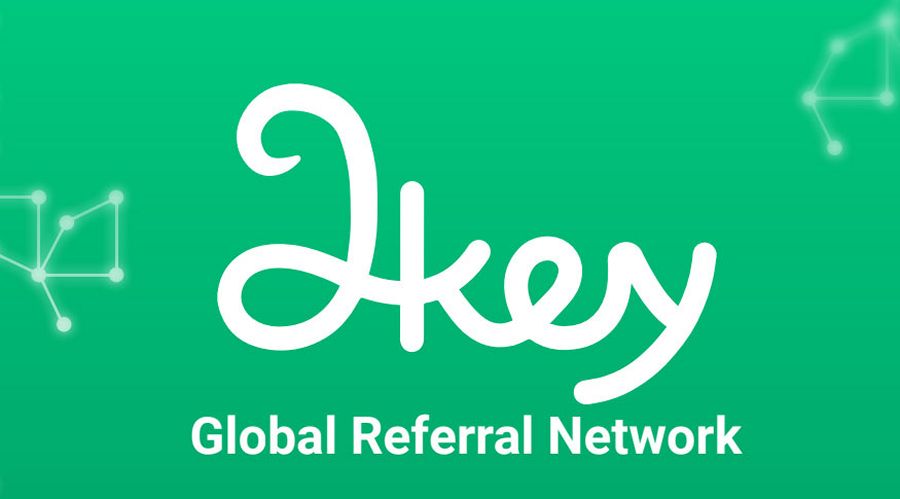This article highlights the key utilities of 2KEY tokens and the support mechanisms that regulate the token’s supply and demand.
2key Network’s ecosystem is comprised of participants termed as contract creators, referrers, and integrators and a number of smart contracts including the Moderator and Exchange Contractor.
Contract Creators: Individuals or entities that start a referral campaign by creating a Smart Link.
Referrers: Individuals or entities that participate in a referral campaign by sharing a Smart Link.
Integrators: Third-party businesses or service providers that integrate a supplementary service in contracts created on 2key Network.
Moderator: The moderator is 2key Network’s admin smart contract.
Exchange Contract: This smart contract connects the 2key protocol to secondary markets.
Each participant’s network engagements either immediately or eventually involve 2KEY tokens and thus 2KEY is the currency of the ecosystem.
However, issuing a currency without necessary mechanisms that control the supply and demand of the currency, in a decentralized manner, leads to currency failure. Thus, a number of smart contracts and game theory principles act as support mechanisms that regulate the supply and demand of 2KEY tokens.
2key is the most advanced solution for referral marketing as Smart Links incorporate all the tracking and analytical resources of existing solutions with added technological advantages that enable real-time tracking of ERC-20 addresses of the people that came in contact with the Smart Link.
Within the 2key ecosystem, contracts are referral campaigns with a set conversion goal which is settled by the contract creator. When a referral contract is created, the contract creator must deposit a contract bounty/reward which is used to pay the referrers whose Smart Link shares lead to conversions.
The contract creation and referral economy create an organic demand for 2KEY in the following ways:
- The contract reward can be in 2KEY tokens. This requires contract creators to acquire 2KEY from the secondary market.
- Contract rewards can also be in DAI or volatile assets like Ethereum. Volatile assets are liquidated for DAI via the 2key Exchange Contract. DAI is locked within the referral contract. In both cases, an amount of 2KEY equivalent to the purchasing power of the available DAI is also locked in the referral contract; this 2KEY is sourced from the liquidity supply allocated to the 2KEY Exchange Contract.
A referrer may choose to withdraw DAI or the 2KEY; if he/she withdraws 2KEY, then the DAI equivalent of the withdrawn tokens is used by the Exchange Contract to purchase 2KEY from exchanges, thereby generating organic secondary market demand for 2KEY.
- Referrers can acquire 2KEY from the secondary market and stake them within their wallets to accumulate reputation at an accelerated pace. Reputation plays a role in the amount of 2KEY earned from successful referrals; this mechanism incentivizes active referrers to maintain a 2KEY stake.
- Payments made to integrators must be in 2KEY. Thus, contract creators must acquire a balance of 2KEY to ensure necessary token liquidity for payment of acquired services. Alternately, ETH or DAI deposits can also be made for integrator fees; the Exchange Contract will automatically use the funds to purchase 2KEY on the exchanges at the instantaneous point of payment need.
Within 2key Network’s ecosystem, there are two types of factors that reduce circulating supply: participant-driven and smart contract-driven. Participant-driven events reduce circulating supply either for operation needs, like locking funds for referral payment, or due to the game theory principles built into the token model, ergo incentivizing active referrers to stake their 2KEY.
Smart contract-driven factors that reduce circulating supply essentially turn the 2key protocol into a business. Rather than building a decentralized project that claims product fees for a centralized 2key company, we have built 2key’s smart contracts to consume fees for themselves, thereby turning the protocol into a self-sustaining business that consumes 2KEY tokens over time.
Participant-Driven Circulating Supply Reduction
- 2KEY that are purchased by contract creators as referral campaign rewards are pulled out of circulation and locked within referral contracts; they are slowly released as payments to referrers.
- As contracts can involve an incredible number of referrers and referral chains can potentially grow very large, the incredibly wide distribution of 2KEY tokens for campaigns can lead to some tokens being pulled out of circulating for indefinite periods because large referral chains could lead to large number of referrers receiving an individual 2KEY distribution so low that the opportunity cost of the time needed to liquidate the tokens would be greater than the value of the tokens.
- Successful referrers can choose to withdraw their earning as 2KEY and stake it within their wallets to accumulate reputation at an accelerated pace. Reputation plays a role in the amount of 2KEY earned from successful referrals; this mechanism incentivizes active referrers to maintain a 2KEY stake and only liquidate the tokens when fiat capital is needed.
- Contract creators will also be allocated a reputation. Contract creators will need to stake a minimum requirement of 2KEY tokens before gaining access to launch a campaign. As their reputation increases, the stake requirement will decrease.
Smart Contract-Driven Circulating Supply Reduction
- Moderator Fee: The 2key Admin Contract is a smart contract that automatically manages capital flow within the ecosystem in a trustless and decentralized manner. For its service, the 2key Admin Contract charges a 2% conversion fee in events that involve revenue gain by the contract creator (like successfully driving a purchase); it charges a 2% fee to referrals rewards on conversions that do not involve revenue gain (like successfully driving a content read). This is an incredibly low rate considering Google AdSense charges a 32% fee to distribute links across banners.
The moderator fee is locked up for network staking. Occasionally, a portion of the moderator fee will be sent to a burn address. - Network Tax: The 2key protocol automatically charges a 2% tariff on the payments made to integrators. As 2key is offering a business growth opportunity to service providers, a 2% tariff is incredibly reasonable. Additionally, the protocol charges this 2% tariff even to the moderator fees accumulated by its own Admin Contract. Network taxes are placed in a rotating 10-year deep freeze pool, thereby reducing circulating supply for a considerable period each deep-freeze round.
- Exchange Contract Fees: The Exchange Contract is used to automatically buy 2KEY in an effort to offer convenience to contract creators. Contract creators can pay integrators with an ETH deposit that is converted to 2KEY at the time of payment; they can also deposit ETH or DAI for contract rewards that will be used to buy 2KEY in case a referrer chooses to withdraw 2KEY instead of DAI. In return for its services, the Exchange Contract keeps a spread above the secondary market asking price of 2KEY; thus, the smart contract drives profit for the decentralized 2key Protocol.
Various mechanisms are at play to ensure 2KEY tokens have liquidity, organic demand, and reduction in supply. Both network participants and the protocol’s smart contracts add to secondary market liquidity. Network participants that want to utilize the service create an organic demand for 2KEY; however, in an industry first, the protocol’s smart contracts act as for-profit service providers that only claim profits in 2KEY tokens and subsequently lock or burn that 2KEY.
This is the first decentralized protocol whose own smart contracts, which offer value-added services like trustless capital distribution, escrow, and convenient token conversion, create an organic demand for 2KEY tokens. 2key Network’s smart contracts themselves acquire tokens through desirable, value-added 2KEY-priced services, and subsequently either lock the tokens or burn them.
We invite you to have a firsthand experience of our breakthrough solution — Smart Links — on our testnet (https://test.2key.io/); you can be the pioneering drive in the first feasible solution in the scramble to decentralize the web.
Important notice: This article was written by Hatu S. (2 key team member)




